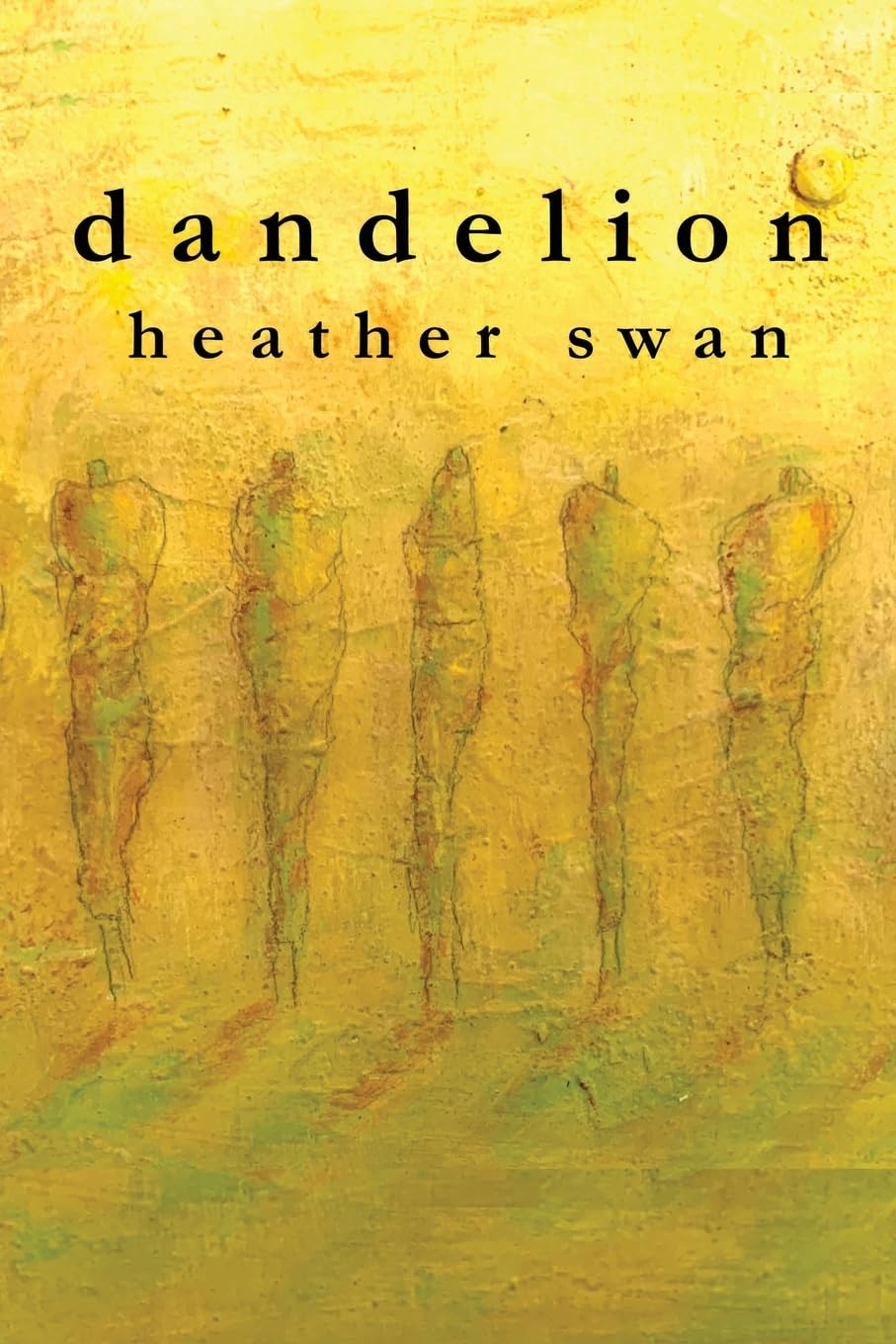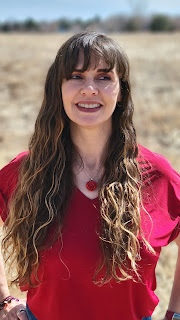Reviewed by Carole Mertz
Dandelion
by Heather Swan
Terrapin Books
October 2023, Paperback, 106 pages, ISBN-13: 978-1947896697
The opening poem in Swan’s Dandelion lets us join a person (we assume it is the author) in a canoe with her friend. The two lament the death of the friend’s son. Geese are flying so low their bodies are mirrored in the lake. One senses the violence of the movement as one also experiences the cutting expanse of grief that seems to spread across the lake. The poem forecasts a sober collection, despite the book’s unprepossessing title.
Though the dark water of the lake (in “While the World Burned On,” Pg.3) does not signify the poet’s only major tone (“the air was thick with dread / and there was so very little light.”), at least five other poems address loss and grieving for loved ones. One such poem is a tender tribute to the author’s father, whose name and dates are given.
Many poems in the collection speak to Swan’s occupation (she lectures in Literary and Environmental Studies at the U. of Wisconsin-Madison) and to her preoccupations (she published Where Honeybees Thrive, Penn State Press, and won the 2018 Sigurd F. Olson Nature Writing Award). As an apiarist, the author knows the importance of symbiosis within the plant-animal kingdoms. Her various “Field Note” poems, sown throughout the collection, display her ecologic concerns. Some are observations and experiences with birds, a polar bear, or a muskrat, for example. But one, “Field Notes: Human Being” (p. 13), describes drastic human-devised destruction:
See how
they eliminated the source
of their lives, how they cut
down the trees, their own breath,
how they poisoned the waters,
the blood in their veins, destroyed
the earth, what fed their flesh.
And oh, how they loved
their plastic and their guns.
This is eloquent language. I find Swan’s syntax convincing and superior to many eco-poets I’ve read throughout the past decade. Her “Crop Duster” carries forth, in poetry, the very concerns Rachel Carson presented in prose in the 1960s and prior. Swan’s “Crop Duster,” (Pg.32-36) written in eight enumerated sections, tells of spraying used to suppress the gypsy moth, of an immune-compromised child, a lump in the girl’s neck. “Does she have allergies? Yes. Has she suffered from asthma? Yes.” And then the brutal statement—“There is no evidence / chemicals were the cause. // If the gland does not go down, / we’ll cut it out.”
Swan scribes mainly in free verse. She clusters some poems as a unit, as at page 57, “The Words of Noah’s Wife: Day 1” which begins a twelve-page imaginative series of descriptions on the Biblical event of the flood. In this section at “Day 21” she writes:
The smell of fresh dung
mingles with the sweet breath
of the gentle beasts. The yaks
sleep close to me. I found
some forgotten basil
folded into cloth;
the freshness lingers
Another group of poems with enumerated segments is “A Story Which Borrows Its Section Titles from Albums by The Cure.” (pgs. 28-30) At Section IX. titled, “Faith,” she writes, “If I plant them, my father tells me, / the seeds he collected from his hollyhocks / will bloom in two years time.” And at Section XI. titled “In Between Days” she says, “Tonight, the fireflies write on the air in a language we can’t understand. / And from the drawer a letter written in his hand.”
As in her 2021 collection A Kinship with Ash, also published by Terrapin Books, Swan includes in the current volume many worthy poems on topics other than ecology. But I prefer to close with excerpts from one that references ourselves and presents as simple enjoyment of life in nature, and of life itself. (From “What Gates But These Bodies,” Pg.78)
the intensity
of the moss’s green
as it softens the arches
of the elm’s roots
which coil over and between rocks
on the riverbank,
and the frog’s throaty vibrato
pouring like liquid
into you.
Anyone who has walked by a stream and heard the rubber-band twang of a nearby frog, can likely understand the rich joy Swan experiences as she continues to observe and write about her alliance with nature. Lauds to her for Dandelion and for continuing to alert us, to help us slip past “the noise of industry and ego,” and to preserve to the best of our abilities the richness of our created world.
About the Author: Heather Swan earned an MFA in Poetry and a PhD in Literary and Environmental Studies from University of Wisconsin-Madison, where she currently works as a lecturer. Her 2017 book, Where Honeybees Thrive: Stories from the Field (Penn State Press), won the 2018 Sigurd F. Olson Nature Writing Award. Swan’s poetry has appeared in such journals as Cold Mountain Review, Phoebe, The Raleigh Review, and at Verse Daily (on May 20, 2024).
About the Reviewer: Carole Mertz, author of Color and Line (Kelsay Books, 2021) has published recent reviews with Full Stop Review, Heavy Feather, Whale Road Review, and (forthcoming) at World Literature Today. She is Book Review Ed. at Dreamers Creative Writing. Carole writes in Parma, Ohio. She was poetry editor for Issue 8.1 of The Ocotillo Review.




